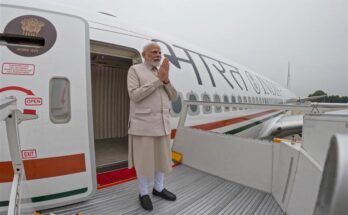
Team News Riveting
Bengaluru, March 30
With an eye to retain the only state it has been ruling, the Bharatiya Janata Party (BJP) will pull all the strings to shatter the 38-year-old tradition in Karnataka of not re-electing the ruling party.
The last time the ruling party romped home in Karnataka was in 1985 when Ramakrishna Hegde-led Janata Party returned to power. The state would go to the polls in a single phase on May 10 while the electoral outcome in the three-cornered contest would be out on May 13.
The state is all set to witness a triangular contest with BJP, Congress and Janata Dal Secular of H D Deve Gowda in the fray. While BJP will battle to retain the only state it is in power in Southern India, Congress will test the public opinion in the changing political equations. For JDS, it will be a contest to judge whether it still remains a king maker in Karnataka.
The Congress will fight the May 10 Karnataka elections for electoral survival after having lost 13 states elections since 2021 barring just one in Himachal Pradesh last year. The state will also endorse the impact of Rahul Gandhi’s Bharat Jodo Yatra that remained for a good number of days in the state covering its length and breadth.
The newly elected Congress President, Mallikarjun Kharge will face manifold challenges. Being his home state, Kharge cannot make an effort to lose the assembly election while this will be the first polls in the Southern Indian state when Congress will contest without a non-Gandhi-Nehru party President. If Congress loses, the entire blame will be on Kharge while if it wins, the credit will go to someone else.
Results of Karnataka polls will also set the tone for Rajasthan, Chhattisgarh and Madhya Pradesh with Congress in power in the first two states and looking for a comeback when it goes to the polls later in the year.
The ruling BJP has set a target of 150 seats in a 224-member Karnataka Assembly to secure an absolute majority. It remains to be seen if Prime Minister Narendra Modi’s pitch against “family based parties” and “the corrupt have come together” will hold good in Karnataka. The phrases refer to Congress and JDS for family clout on organisation and corruption for the latter. After all, the BJP has to combat the anti-incumbency.
The BJP’s strategy is based on the state’s 35 per cent OBCs population. The saffron brigade seeks to dent Congress’ AHINDA voter base (Dalits, Backward Classes, Kurubas and Muslims) with LIBRA (Lingayat, Brahmin) segments and adds more with its latest reservation grant to Lingayats and Vokkaligas, after scrapping a 4 per cent Muslim quota within the OBC reservation list.
If BJP’s anti-OBC narrative against Gandhi works in the backdrop of controversial Modi surname issue, it hopes to woo 35 per cent OBCs in Karnataka that has 17 per cent Lingayats; 15 per cent Vokkaligas, 18 per cent SCs/STs, 12.92 per cent Muslims and about 3 per cent Brahmins.



